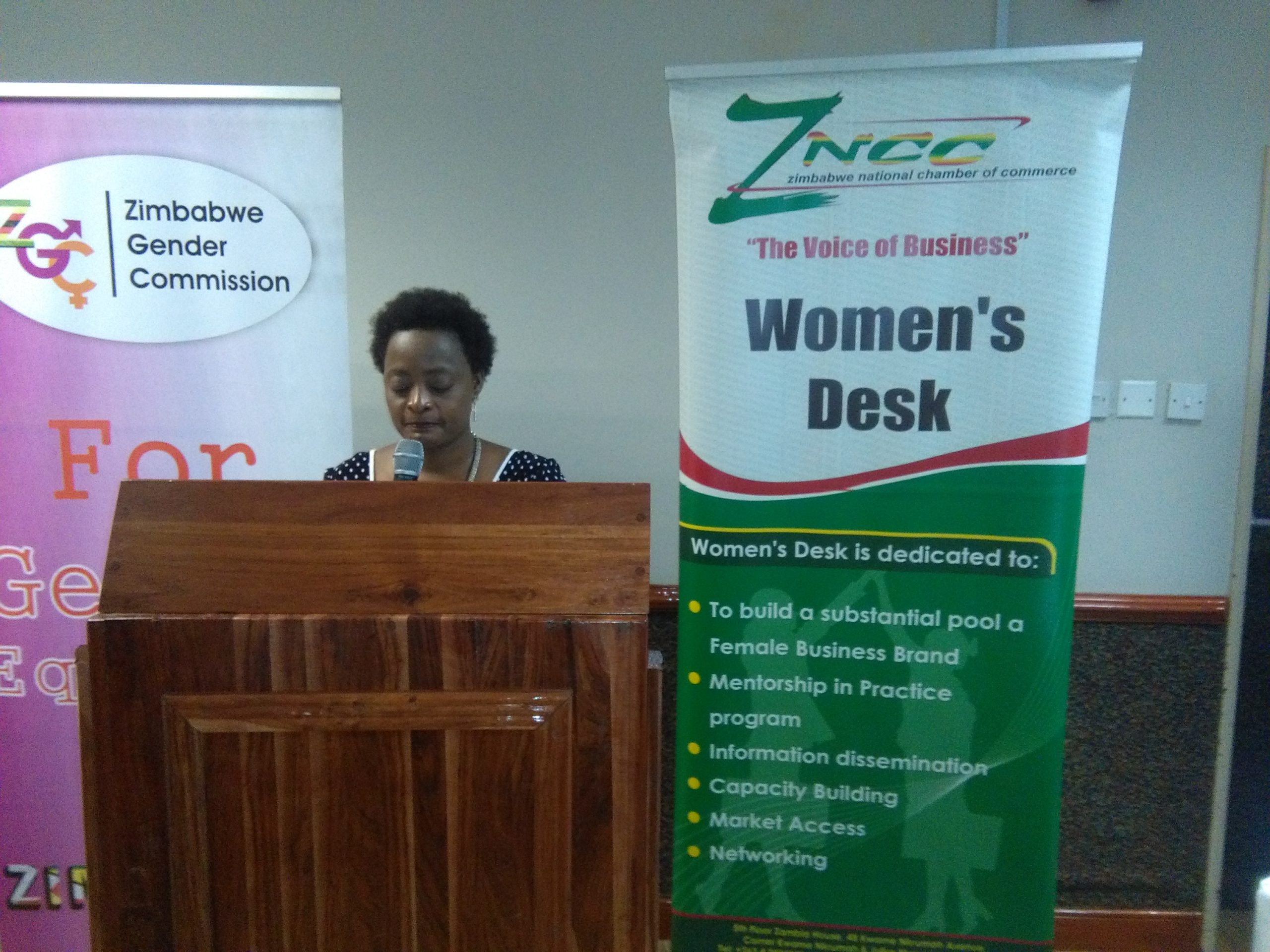The Zimbabwe Gender Commission (ZGC) has spelt out the continued existence of gender disparities in the work place despite government policies and initiatives to facilitate the empowerment of women in various aspects of life.
Speaking at a breakfast meeting held under the theme “Diversity and Inclusiveness: Womenomics Makes the Difference” on Women leadership in the public and private sector held in Harare, Margaret Mukahanana- Sangarwe said there was evidence that more still needs to be done to improve gender equity.
“In spite of the existence of these constitutional provisions, instruments and policies promoting gender equality evidence suggest that there is still a lot of work to do to ensure that board rooms better reflect the gender diversity of our country. A study entitled Measuring Differences on Board of Directors in Zimbabwe 2015 highlighted that out of 406 directors in the private sector, 10% were women, out of 64 chief executive officers of companies listed on the stock exchange, only three CEOs were females (4.68%) and out of the 103 CEOs of state owned parastatals, there were only 15 females CEOs. Out of 88 chairpersons of parastatal boards women chairpersons only constitute 27%. In the public sector the same trend appears with only eight female permanent secretaries out of 26 and out of 26 cabinet Ministers only three are women.” Mukahanana said.
The gender expert added that the trend was a regional issue as revealed in the Women Matter Africa Report of 2016, which revealed that only 5% of CEOs in Africa were women.
She also said that other challenges inhibiting women from climbing the corporate ladder include socialisation which has preconditioned males as superiors and more powerful and women as inferior and lacking the power of decision-making.
These social perceptions towards male supremacy have also made sexual harassment socially acceptable at the workplace, as women are afraid to report such cases.
Sexual harassment has been known to intimidate and demoralise women, leaving them in fear and silence without the confidence to pursue higher positions.
Mukahanana called for the mentorship of disempowered women to help them grow through exchanging of ideas and success stories.
Divine Ndhlukula, the President of Zimbabwe National Chamber of Commerce who is also the Managing Director of Securico Security Services said there was need for implementing women empowerment initiatives.
“The case of investing in women has already been made. What is now needed is action. We will achieve this by sharing experiences and creating global networks for women entrepreneurs,” said Ndhukula.
Willia Bonyongwe, the Zimbabwe Revenue Authority (Zimra) Chairperson said women need to push for what they want at the work place so as to get noticed. Some notable influential women in leadership positions who participated at the meeting include among others Sharon Samushonga, the Manager of Daily News newspaper, Caroline Nyamayemombe, the Deputy Country Representative of UN Women Zimbabwe office and Charity Jinya, the Managing Director of MBCA Bank.
Traditionally, women have been regarded as inferior human beings, whose roles being home making (ILO, 2015). However, today, women have broken through the traditional garb and are occupying bigger leadership positions to the extent of being CEOs and Directors of Companies and Departments. These achievements stem from various initiatives and programmes by Government that had helped in empowering women in various aspects of life. The Constitution of Zimbabwe in Section 17 provides that the government should promote gender balance, taking into cognisance the full participation of women in political, social and economic spheres. Further the Sustainable Development Goal 5 (SDGs 2015) specifically clause 5.1 and 5.5, emphasise the ending of all forms of discrimination against all women and girls everywhere as well as ensuring women’s full and effective participation and equal opportunities for leadership at all levels of decision making (UN, 2015).
In spite of the existence of the constitutional provisions, instruments and policies, evidence suggests that women in leadership positions are facing a different reality from their male counterparts . Women in decision making positions are faced with various challenges that hamper them in fulfilling their roles. These include, dominant masculine culture, negative attitude from subordinates, woman natural roles, low level of commitment and confidence, lack of time to socialise and networking.






